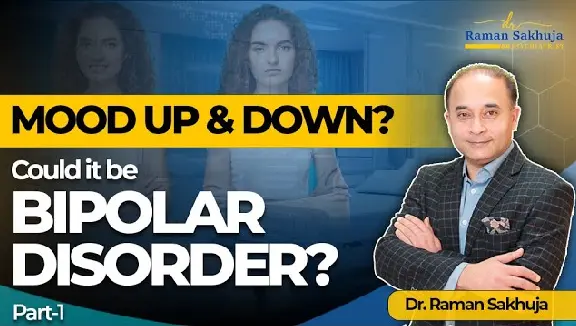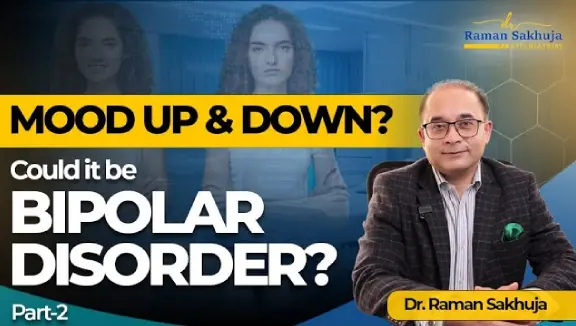
Adult Bipolar Disorder Treatment in Wales
As the name suggests, Bipolar Disorder is a disorder that is an episodic mood disorder where two different poles of mood are seen. These poles are those of an elevated, elated or irritable mood which can be Manic, Mixed or Hypomanic and this alternates with the other pole of the mood presenting as depressive episodes or having periods of depressive symptoms.The adult bipolar disorder treatment in Wales begins with identifying the symptoms. It involves phases including intense joy, elation, and enthusiasm as well as irritation, anger, rage episodes, hostile behaviour, restlessness, etc. The doctor will offer the necessary treatment after the symptoms have been diagnosed.
How is this mood disorder diagnosed?
Mood Disorder Treatment in Wales
The diagnosis of Bipolar Mood Disorder is based on a detailed history and understanding of the mood symptoms. Normally, a detailed history of mood symptoms is required with careful understanding of the symptoms being present as distinct episodes of a particular mood state for a consecutive period of time. Typically, if someone has a Bipolar Disorder and presents with a Manic or Hypomanic symptoms, the fundamental problem would be that of the mood being elated and expansive, more than the normal for that individual for a sustained period of time, along with evidence of increased physical and mental activity, reduced need for sleep and/or distractibility amongst other symptoms. On the other hand, those having a depressive episode or depressive symptoms would normally have a low and depressed mood along with other depressive symptoms, again for a sustained period of time.
Can someone experience Psychotic symptoms with Bipolar Disorder?
Psychotic symptoms can be present either with or without the presence of a mood disorder. Depending on the severity of the mood disorder, individuals can experience psychotic symptoms with mania as well as with severe depression. The nature and the contents of the psychotic symptoms can be varied and are often associated with the kind of primary mood symptoms, which technically are called mood congruent psychotic symptoms. An example of this would be, that if someone is having a manic episode, the psychotic symptoms would most often be in keeping with the elated and expansive mood resulting in grandiose delusions or religious delusions. A manic episode can also present with irritability of mood and that may also result in paranoid persecutory delusions, if someone experiences psychotic symptoms.
On the contrary, psychotic symptoms that are usually seen with Depressive episodes in Bipolar disorder, are often delusions related to negative beliefs, pessimism or nihilism.
It is for the Psychiatrist to spend time to understand the exact nature of symptoms that an individual is suffering from and it is important for people to have consulted with the specialist.
Are there any conditions that can be mistaken for Bipolar Disorder?
Changes in mood can happen from external environmental influences and most human beings have a specific, individualised way of regulating their moods and emotions. Quick changes in mood, mood swings or emotional turmoil can often be confused with mood disorders such as a Bipolar Disorder.
In Dr. Raman Sakhuja's experience, some of the most common disorders that need careful teasing apart as part of a comprehensive psychiatric assessment and evaluation for a mood disorder include emotional dysregulation as part of an individual's personality, emotional dysregulation as part of a personality disorder and also emotional dysregulation that can present as part of an ADHD(Attention Deficit Hyperactivity Disorder). Primary Psychotic disorders need to be considered as a differential diagnosis as well as part of this assessment.
How are the other disorders differentiated from Bipolar Disorder?
The Psychiatrist as the specialist will be able to carry out a comprehensive and detailed psychiatric evaluation and assessment to understand the mood symptoms in detail and obtain information not just from the patient but also from collateral sources such as friends and family members to distinguish the different disorders.
Dr. Raman Sakhuja is very particular about spending the right amount of time to gather information on all the symptoms and also uses screening tools as part of a psychiatric assessment to get information on the possibilities of the overlapping conditions along with mood charts that can be very helpful in identifying the cause of symptoms that an individual has over a period of time.
A detailed evaluation often involves the history of mood symptoms, information from all charts, other mental health difficulties, family history of any specific mental health conditions such as a mood disorder, ADHD, substance misuse and personality disorders.
Dr. Raman Sakhuja also uses all of this information as part of Bipolarity Index which enables him to use the index along with the clinical information to highlight the probability of someone to be having a Bipolar Disorder.
How is this disorder treated?
The main treatment for Bipolar Disorder or mood disorder treatment in Wales includes the use of mood stabilisers which help in reducing the intensity of these episodes and also to prevent relapses after remission from one episode. Depending on the symptoms and the severity of symptoms, there can be a need of prescribed antipsychotics as well as antidepressants. No two individuals are the same and therefore, no two bipolar disorders that people suffer from can be the same and it is best for individualised treatments to be discussed with the treating psychiatrist.
The psychiatrist may also consider psychological therapies depending on the individual's needs and it is often important to look at comorbid mental health conditions, the premorbid personality and any comorbid physical health conditions so as to provide an individualised treatment plan for the person suffering with this disorder.

Bipolar Disorder Causes,Symptoms | Part-1 | Bipolar Disorder Treatment in Cardiff, United Kingdom

Bipolar Disorder Diagnosis & Treatment | Part-2 | Bipolar Disorder Treatment in United Kingdom
(9:30 AM - 1:30 PM)
(5:30 PM - 8:00 PM)
Request An Appointment
For appointments, please contact us via email at: info@walespsychiatrycentre.com
- Terms & Conditions | Legal Disclaimer | Privacy Policy | Complaints Policy

